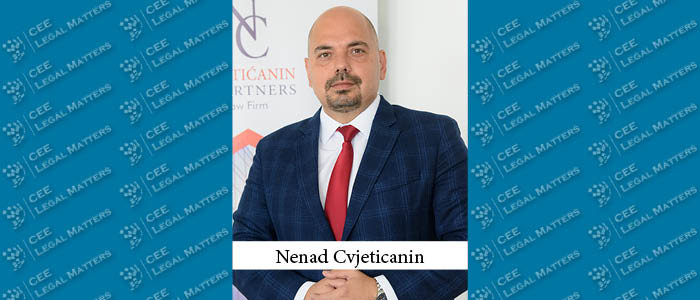Comprehensive regulatory changes targeting tobacco products, specifically vapes and electronic cigarettes, as well as the upcoming general election taking place on December 17 hold the front page for lawyers in Serbia, according to Cvjeticanin & Partners Managing Partner Nenad Cvjeticanin.
“Previous provisions didn’t regulate the precise usage of vapes and electronic smoking devices not containing tobacco, but rather nicotine liquids,” Cvjeticanin begins, tackling the changes to the tobacco framework. These products are mainly imported from China and this, he points out, is not a tobacco-producing country. “Usage of these devices was noticed as an alarming trend among minors, even elementary school children, primarily influenced by social media – and this prompted the need for regulation.”
Cvjeticanin reports that “the regulator responded by forbidding the sale of these products to minors as well as their sale online. Now, only spare parts or batteries can be bought online, not vapes or their liquid charges.” Additionally, a maximum nicotine limit of 2 milligrams per charge, as well as 2 milliliters of liquid by charge has been set for electronic devices, he explains.
Moreover, Cvjeticanin says that the “government has introduced new registers for manufacturers and importers of tobacco-related products. These devices are mostly imported, so import and retail fees have been introduced, making them more expensive,” he explains. “Importers and retailers now need a special license, which is time-limited and involves extra costs for renewal; also, there are marketing restrictions to make these products less appealing to children.”
Putting things into a broader context, Cvjeticanin says that “Serbia still has the highest rates of smokers in the EU and the region. These regulatory steps are part of Serbia's effort to harmonize with the EU's acquis communautaire – many importers from the EU we work with have noticed similar changes in their regions,” he stresses.
Moving on to other matters, Cvjeticanin points out that Serbia is entering the final stages of a general election cycle. “The likelihood is that the same political option will remain in power,” he says, noting that “the government's focus on digitalization and investments has led to a shift in the workforce, which is rather significant in the past years. Still, the current economic climate remains good, despite challenges brought about by the post-COVID times and the war in Ukraine.”
Speaking of workforce shifts, Cvjeticanin touches more on the challenges Serbia faces in industries like construction and transportation. “There's a notable migration of Serbian workers from traditional industries to online and freelance jobs. Consequently, a lot of people from countries like Nepal, Cuba, and India are replacing them, especially in construction, agriculture, and transportation. To address the labor shortage, the government introduced the Carta Serbica, allowing emigrants to regain Serbian citizenship quickly,” he explains. “The shift in the workforce and the need for skilled labor in education, IT, and the public sector still present challenges,” he adds. “This restricts investments to smaller and medium-sized ventures, as significant new entries would require thousands of workers,” Cvjeticanin concludes.






















